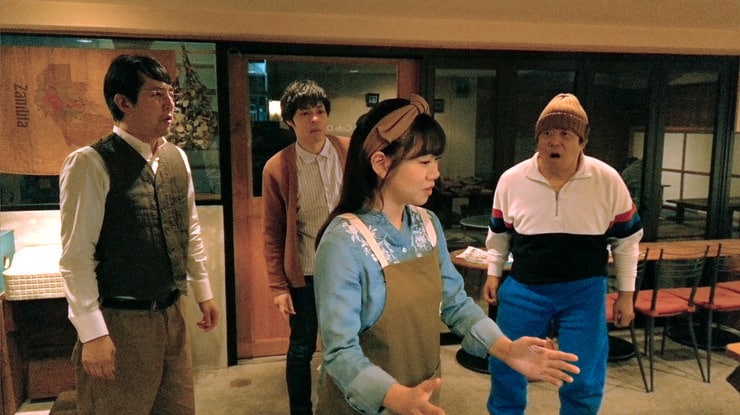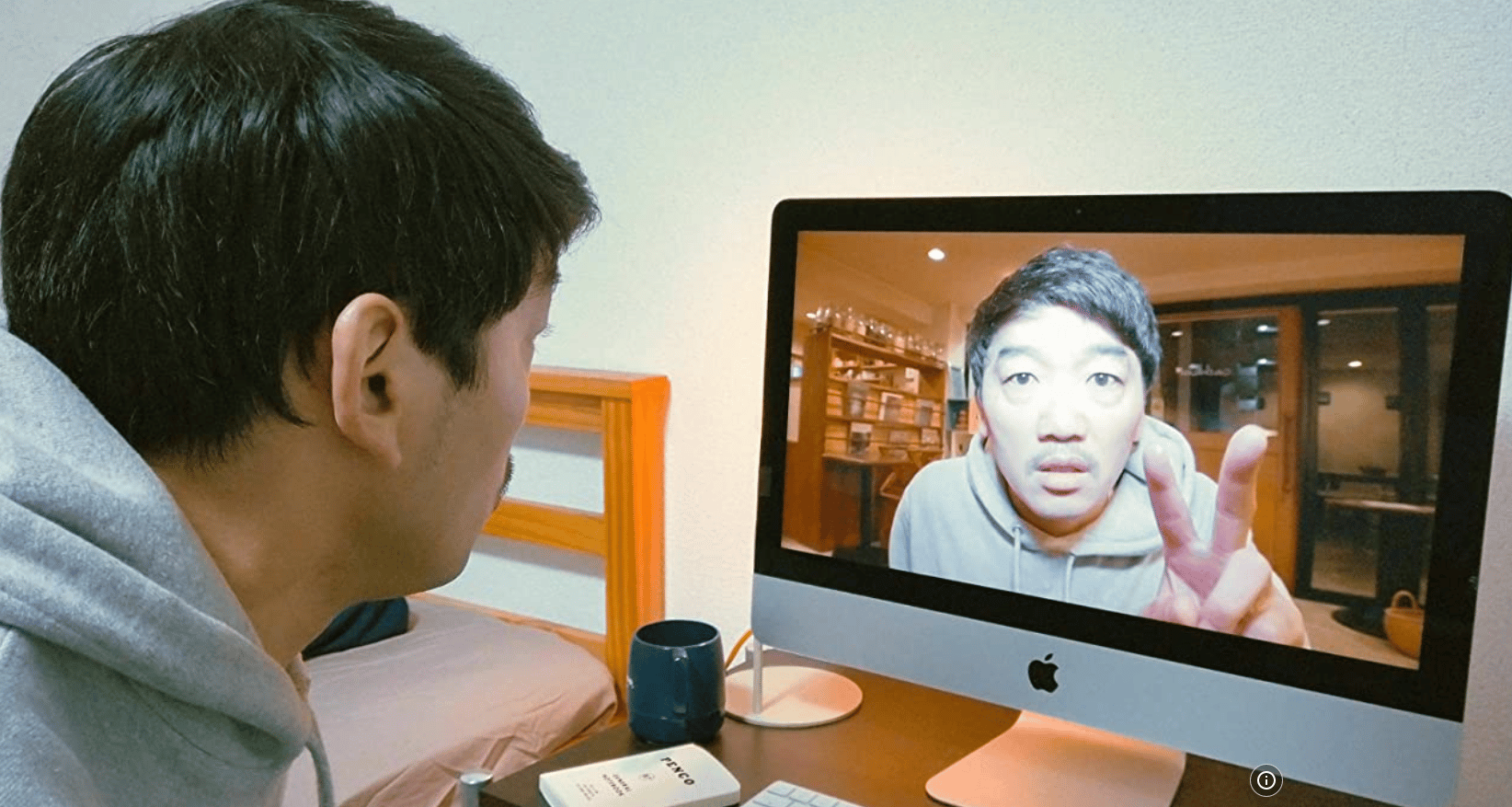
Most of the time, when a film engages with the theme of time travel, it tends to be a bit po-faced. Sure, it can be epic, but the basis of that is usually dystopian futures, mercenaries, world-ending wars and glimpses of horrific alternatives – and no, I swear I’m not just thinking of Terminator. It doesn’t need to be this way. It really doesn’t. Beyond the Infinite Two Minutes is the definition of a low-budget film; it has limited sets, a small cast and no flashy SFX whatsoever. And it doesn’t need any of that; it has the nous to present a wholly different kind of time travel film, though, which turns out to count for a lot.
We’re in Kyoto, Japan: café owner Kato (Kazunari Tosa) lives a simple life. When he’s not in work, he’s at home (he lives upstairs, so it’s a short commute) and he passes the rest of his time playing music. This is all well and good, and the film wastes no time establishing Kato as a kind of pleasant, harmless everyman – but things are about to get more interesting for him, whether he wants it to or not. In his flat, he sees himself on his computer monitor: he’s…downstairs, and apparently, addressing himself from the future. The lag between computer monitor and shop cam is two minutes, hence this is a whole two minutes ahead of the present. So Kato explains this to Kato, and then asks him to come downstairs. He does this, just in time to see himself, upstairs, where he explains this to the past version of himself…
Confused? Confusing? Will this loop go on and on? Never fear: somehow the film manages to steer the time travel aspects very well, and – as other people appear and discover what is going on, right down to conversing with themselves – they realise that they have Time TV on their hands. Time TV! Oh, the possibilities! All of this unfolding – with the characters in the film working out what’s going on at about the same rate that the audience is, with the camera acting like one of the gang – is a lot of fun, with a nice, engaging focus on the smaller details of all of these goings-on. It gives a different spin on more than a few very everyday social dilemmas, too, with future selves giving advice on what to do (in the next couple of minutes, at least). And this is where it begins to get more interesting; as people begin to think of new ways to play with their newfound skills, the scope for mishaps grows and grows.
This is a very cleverly put-together film with what feels like a very light touch, and I could be wrong, but I feel sure this took some fairly strenuous writing and re-writing, and it pays off. The story emerges very steadily, but the tone is always sparky and lively, and the presiding mood is glee – for the most part, anyway. This is an interesting thing that’s happened, and people want to play around with it. Of course they do. This film has a running time of just one hour ten minutes, and this is fine; it means that things never slip, or lapse into a dull middle chapter – there’s no time for that, and things move forwards in just the right way. The dialogue is very funny, too, losing nothing in translation, and the way in which that script unpacks the finer points of the goings-on is a joy in itself. It’s an aspect that’s normally wholly missing from any use of time travel. After all, as an example, would you not try to prank yourself, if you got to talk to yourself in the past?
There’s some peril, sure, and the film probably does need a bit of that to add some extra variety, but this is still in keeping with the rest of proceedings, sticking close to a comedy of errors. For all that, the film keeps something up its sleeve…a few head-scratching moments do occur, but overall, Beyond The Infinite Two Minutes takes a quirky, refreshing approach to its subject matter, and it’s a refreshing experience. Here we are then: a feelgood, low-key sci-fi, and a joyful tribute to some fine writing and acting. Thank god for wireless monitors, too: now they really are the future. Take a look at this film when it hits digital release – you’ll be glad you did.
Beyond the Infinite Two Minutes (2020) will be available on Digital HD and Cable VOD from January 25th 2022. Physical copies are available via Third Window Films.
